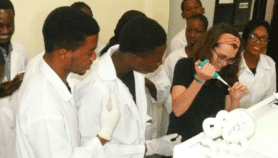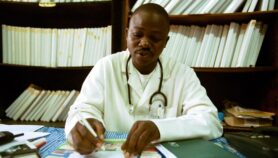By: Ochieng’ Ogodo
Send to a friend
The details you provide on this page will not be used to send unsolicited email, and will not be sold to a 3rd party. See privacy policy.
[MBARARA, UGANDA] The Commonwealth Heads of Governments must renew their commitment to science, technology and innovation (ST&I) as the key to transforming societies and achieving the Millennium Development Goals.
This was the final resolution of the ST&I for Wealth Creation and Improved Livelihood Symposium organised by in Mbarara, Uganda last week (15 September). The conference precedes the Commonwealth Heads of Government Meeting in Kampala, Uganda, in November, at which the resolution will be presented to commonwealth leaders.
The resolution calls upon leaders to help higher education and scientific research institutions play a more effective role in science, technology and engineering education and development, particularly in Africa.
It calls such institutions "central to the process of generation, dissemination and transfer of scientific knowledge, and the provision of skilled human resources."
The symposium urged commonwealth institutions, such as the Commonwealth Conference of Education Ministers and commonwealth universities, to action and called for governments to develop incentive schemes that attract, encourage and sustain private sector investment in tertiary education for science and technology.
Strengthening south-south and north-south cooperation was also seen as an important way to foster science and technology capacity. Governments were also urged to establish ST&I forums for stakeholders to air their views.
Commonwealth leaders were asked to reaffirm their government’s commitment to earmark at least one per cent of gross domestic product to research and development in science and technology.
Uganda parliamentarian, Amuriat Oboi Patrick, said the resolution was encouraging, given that ST&I forms the cornerstone of industrialisation, something most African countries would like to attain.
But he warned that leaders must act on their promises.
"Science and technological development comes with a cost, and given that African governments have reneged on the promise to increase spending on it to one per cent of the GDP, it may just remain on paper," he said.
Peter Ndemere, executive secretary of the Uganda National Council for Science and Technology, agreed. "African leaders must reflect and rededicate on the previous issue of provision of funds for science and technological development," he said.
Participants at the symposium included academics, industrialists, parliamentarians and members of the public.













